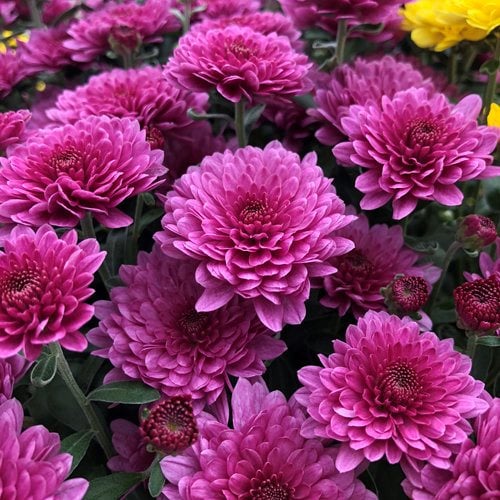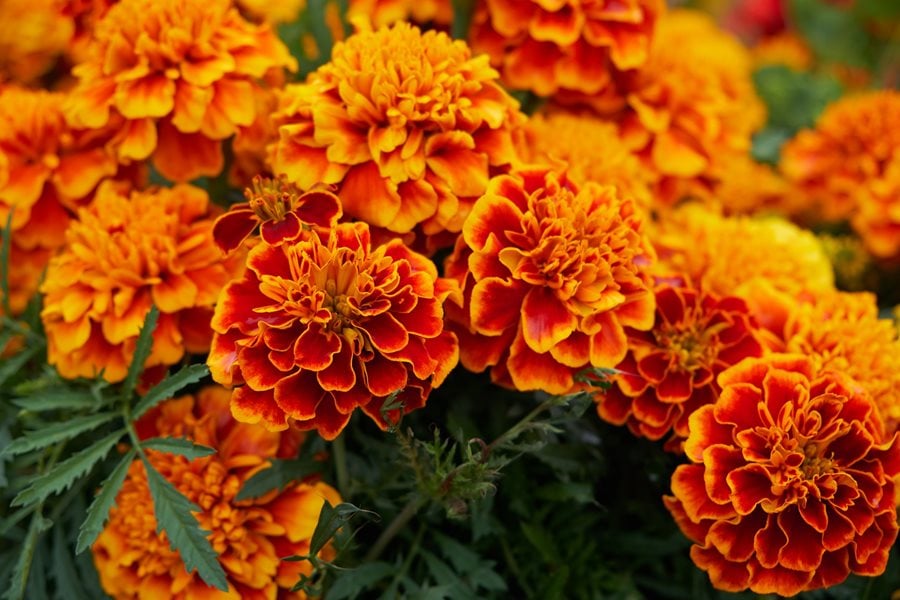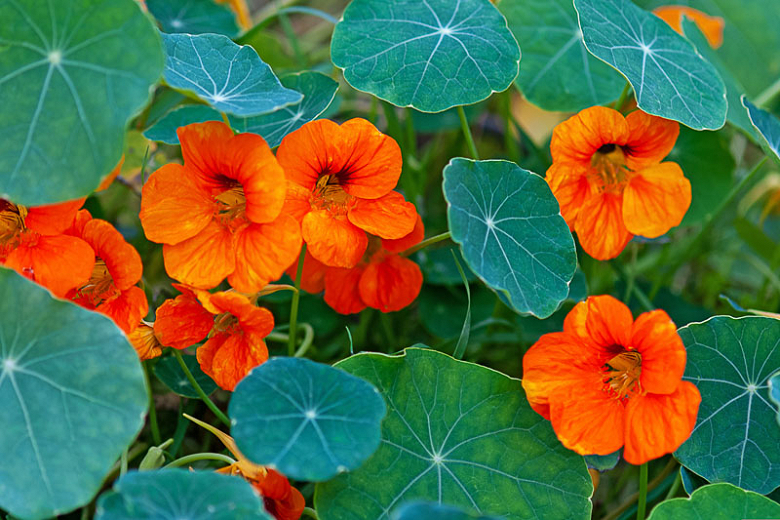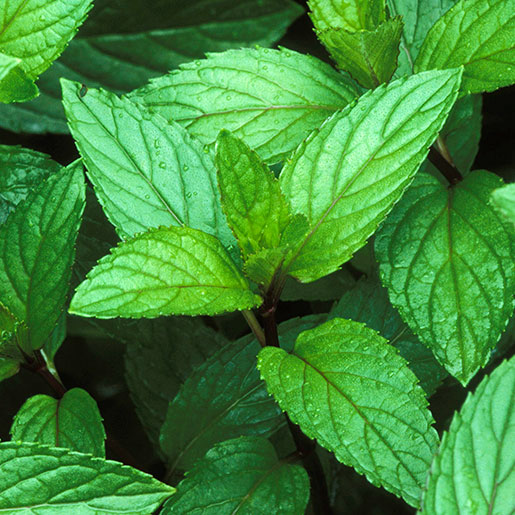Companion Plants That Will Keep Aphids
Aphids are small, soft-bodied insects that are a common pest of garden plants. They can quickly multiply and cause significant damage to leaves, stems, and flowers. While there are a number of chemical pesticides that can be used to control aphids, many gardeners prefer to use more natural methods. One of the most effective ways to control aphids is to plant companion plants that repel them.
Companion planting is a gardening practice of planting certain plants together that benefit each other. Some plants have natural insecticidal properties that can help to deter pests, while others attract beneficial insects that prey on pests. By planting companion plants, you can create a garden that is more resistant to pests and diseases.
Here are some of the best companion plants for repelling aphids:
- Allium species (garlic, onions, chives). The strong scent of alliums is known to repel a variety of pests, including aphids. Plant alliums near your most vulnerable plants to help keep aphids away.

- Basil. The strong scent of basil is also effective at deterring aphids. Plant basil near tomatoes, peppers, and other vegetables that are susceptible to aphids.

- Catnip. Catnip is another herb with a strong scent that aphids don't like. Plant catnip near roses, cabbage, and other plants that are often targeted by aphids.

- Chrysanthemums. Chrysanthemums release a chemical that repels a variety of pests, including aphids. Plant chrysanthemums near your vegetable garden or flower beds to help keep aphids at bay.

- Marigolds. Marigolds are another popular choice for companion planting. They release a scent that deters a variety of pests, including aphids, whiteflies, and beetles. Plant marigolds around the perimeter of your garden to help create a pest-free zone.

- Nasturtiums. Nasturtiums are a type of flowering plant that is known to attract beneficial insects, such as ladybugs and hoverflies. These insects prey on aphids and other garden pests, helping to keep your plants healthy. Plant nasturtiums near your vegetable garden or flower beds to attract these beneficial insects.

- Peppermint. The strong scent of peppermint is another effective way to deter aphids. Plant peppermint near your most vulnerable plants to help keep them pest-free.

- Ruta. Ruta is a type of herb with a strong, unpleasant scent that aphids don't like. Plant ruta near your vegetable garden or flower beds to help keep aphids away.
- Yarrow. Yarrow is a flowering plant that is known to repel a variety of pests, including aphids. Plant yarrow near your vegetable garden or flower beds to help create a pest-free zone.

In addition to the plants listed above, there are many other companion plants that can help to repel aphids. By doing some research, you can find the right companion plants for your specific garden and help to keep your plants healthy and pest-free.
Aphids are small, sap-sucking insects that can be a major nuisance in gardens. They can quickly infest plants and cause them to wilt, deform, and even die. While there are a number of chemical pesticides that can be used to control aphids, many gardeners prefer to use more natural methods. One effective way to deter aphids is to plant companion plants that they don't like.
Some of the best companion plants for deterring aphids include:
- Marigolds: Marigolds have a strong scent that aphids find repulsive. They also attract beneficial insects, such as ladybugs and lacewings, which prey on aphids.
- Basil: Basil has a strong scent that masks the scent of other plants, making them less attractive to aphids. It also produces a chemical that kills aphids on contact.
- Chives: Chives have a strong smell that aphids don't like. They also contain a chemical that can help to repel other pests, such as spider mites and whiteflies.
- Garlic: Garlic has a strong odor that aphids find unpleasant. It also contains a chemical that can kill aphids on contact.
- Nasturtiums: Nasturtiums produce a chemical that can help to repel aphids. They also attract beneficial insects, such as ladybugs and hoverflies, which prey on aphids.
If you're looking for a natural way to deter aphids from your garden, try planting some of these companion plants. For more information about companion planting and other natural pest control methods, visit Gardenia Inspiration.
FAQ of companion plants to deter aphids
What are companion plants?
Companion plants are plants that are grown together in the same garden or landscape. They can be chosen for a variety of reasons, such as to attract beneficial insects, improve soil quality, or deter pests.
What plants deter aphids?
There are a number of plants that have been shown to deter aphids. Some of the most effective include:
- Allium species (onions, garlic, chives)
- Basil
- Calendula
- Dill
- Fennel
- Lavender
- Marigolds
- Nasturtiums
- Petunias
- Rue
These plants produce strong scents or chemicals that are unpleasant to aphids. They may also attract beneficial insects, such as ladybugs and lacewings, which prey on aphids.
How do I plant companion plants to deter aphids?
When planting companion plants to deter aphids, it is important to consider the size and growth habits of the plants. For example, tall plants, such as sunflowers and marigolds, can be planted as a barrier to protect shorter plants from aphids. You can also plant companion plants in a checkerboard pattern to create a more diverse and pest-resistant garden.
How often should I check my plants for aphids?
It is important to check your plants for aphids regularly, especially during the spring and summer months when aphids are most active. Aphids can be easily identified by their small, pear-shaped bodies and soft, sucking mouthparts. They are often found clustered on the undersides of leaves.
If you find aphids on your plants, you can remove them by hand or with a strong stream of water. You can also apply insecticidal soap or neem oil to the affected plants.
What are some other ways to deter aphids?
In addition to planting companion plants, there are a number of other ways to deter aphids. Some of these methods include:
- Attracting beneficial insects: Beneficial insects, such as ladybugs and lacewings, prey on aphids. You can attract these insects to your garden by planting flowers that they like, such as marigolds and cosmos.
- Using natural insecticidal soaps and oils: Insecticidal soaps and oils are effective at killing aphids without harming beneficial insects or the environment. You can find these products at most garden centers.
- Spraying plants with water: A strong stream of water can knock aphids off of plants. This is a non-toxic and effective way to control aphid populations.
- Removing infested plants: If you have a severe aphid infestation, you may need to remove the infested plants from your garden. This will help to prevent the spread of the infestation to other plants.
Post a Comment for " Companion Plants That Will Keep Aphids"